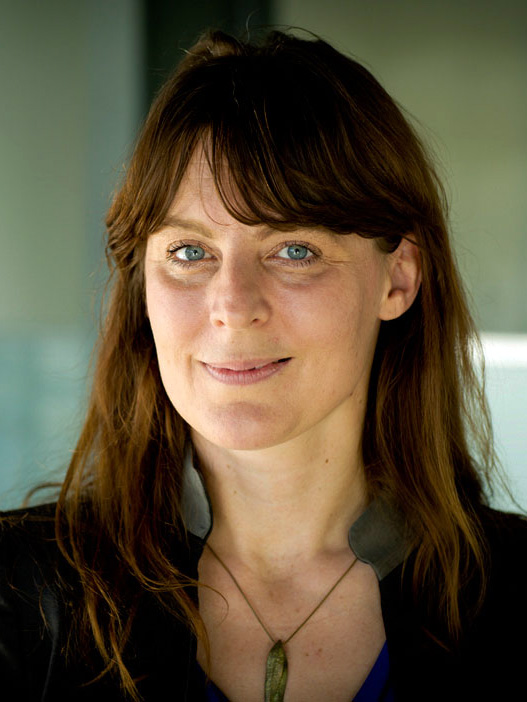AAS Names Lisa Kaltenegger Fred Kavli Plenary Lecturer for 236th Meeting
PRESS RELEASE
** Contact details appear below. **
 With support from the Kavli Foundation, the Vice-Presidents of the American Astronomical Society (AAS) name a special invited lecturer to kick off each semiannual AAS meeting with a presentation on recent research of great importance. At the 236th AAS meeting in Madison, Wisconsin, on 1 June 2020, the Fred Kavli Plenary Lecture will be given by Lisa Kaltenegger, Director of the Carl Sagan Institute and Associate Professor in the Department of Astronomy at Cornell University in Ithaca, New York.
With support from the Kavli Foundation, the Vice-Presidents of the American Astronomical Society (AAS) name a special invited lecturer to kick off each semiannual AAS meeting with a presentation on recent research of great importance. At the 236th AAS meeting in Madison, Wisconsin, on 1 June 2020, the Fred Kavli Plenary Lecture will be given by Lisa Kaltenegger, Director of the Carl Sagan Institute and Associate Professor in the Department of Astronomy at Cornell University in Ithaca, New York.
Kaltenegger is at the forefront of one of the most exciting areas of research in astrophysics today: the search for signs of life on planets orbiting stars other than the Sun. She focuses on rocky worlds and super-Earths, especially those in their star’s habitable zone, the not-too-close-and-hot, not-too-distant-and-cold region where liquid water can exist. She is a world leader in modeling potentially habitable worlds and in predicting the spectral fingerprints their atmospheres might reveal to the next generation of large ground- and space-based telescopes. She and her colleagues are trying to answer the vexing question of what kinds of telescopic observations could be explained uniquely by biological activity rather than by abiotic processes.
In her Kavli lecture, Kaltenegger will explore ways to identify life on rocky exoplanets. “The detection of planets orbiting other stars has revolutionized our view of the cosmos,” says Kaltenegger. “We live in a fascinating era, where for the first time in human history we will have the tools to figure out whether we are alone in the universe.”
Kaltenegger earned her bachelor’s degree in astrophysics in 1999 from Karl Franzens University (KFU) in Graz, Austria, her master’s degree in physics and engineering in 2001 from the Graz University of Technology, and her doctorate in astrophysics in 2005 from KFU. Before moving to Cornell in 2014 she held appointments at the Max Planck Institute for Astronomy in Heidelberg, Germany; the University of Heidelberg; Harvard University; and the Center for Astrophysics | Harvard & Smithsonian. She serves on the National Science Foundation’s Astronomy and Astrophysics Advisory Committee and on the panel that conducts NASA’s senior review of operating missions. She’s on the science team for the Transiting Exoplanet Survey Satellite (TESS) mission and on the instrument team for the James Webb Space Telescope’s Near-Infrared Imager and Slitless Spectrograph.
Among her recent awards are an International Astronomical Union Invited Discourse in 2015, the Austrian Doppler Prize for Innovation in Science in 2014, and Germany’s Heinz Maier-Leibnitz Prize for Physics in 2012. She was named an Innovator to Watch by TIME magazine, a Role Model for Women in Science and Research by the European Commission, and one of America’s Young Innovators by Smithsonian magazine. Asteroid 7734 Kaltenegger is named after her.
The AAS is delighted to add to this list by honoring Prof. Lisa Kaltenegger with the June 2020 Fred Kavli Plenary Lectureship.
Contacts
Image:
https://aas.org/sites/default/files/2020-02/Lisa_Kaltenegger.jpg
Astronomer Lisa Kaltenegger, Director of the Carl Sagan Institute at Cornell University, will give the Fred Kavli Plenary Lecture at the 236th meeting of the American Astronomical Society in Madison, Wisconsin, on 1 June 2020. In her talk she’ll explore ways to identify life on rocky planets around stars beyond the Sun. Photo courtesy Cornell University.
The Kavli Foundation, established in December 2000 by Fred Kavli, a California business leader and philanthropist, is dedicated to advancing science for the benefit of humanity, promoting public understanding of scientific research, and supporting scientists and their work. The foundation's mission is implemented through an international program of research institutes, professorships, symposia, and other initiatives in the fields of astrophysics, nanoscience, neuroscience, and theoretical physics.
The American Astronomical Society (AAS), established in 1899, is the major organization of professional astronomers in North America. Its membership of more than 8,000 also includes physicists, mathematicians, geologists, engineers, and others whose research interests lie within the broad spectrum of subjects now comprising the astronomical sciences. The mission of the AAS is to enhance and share humanity’s scientific understanding of the universe, which it achieves through publishing, meeting organization, education and outreach, policy advocacy, and training and professional development.

